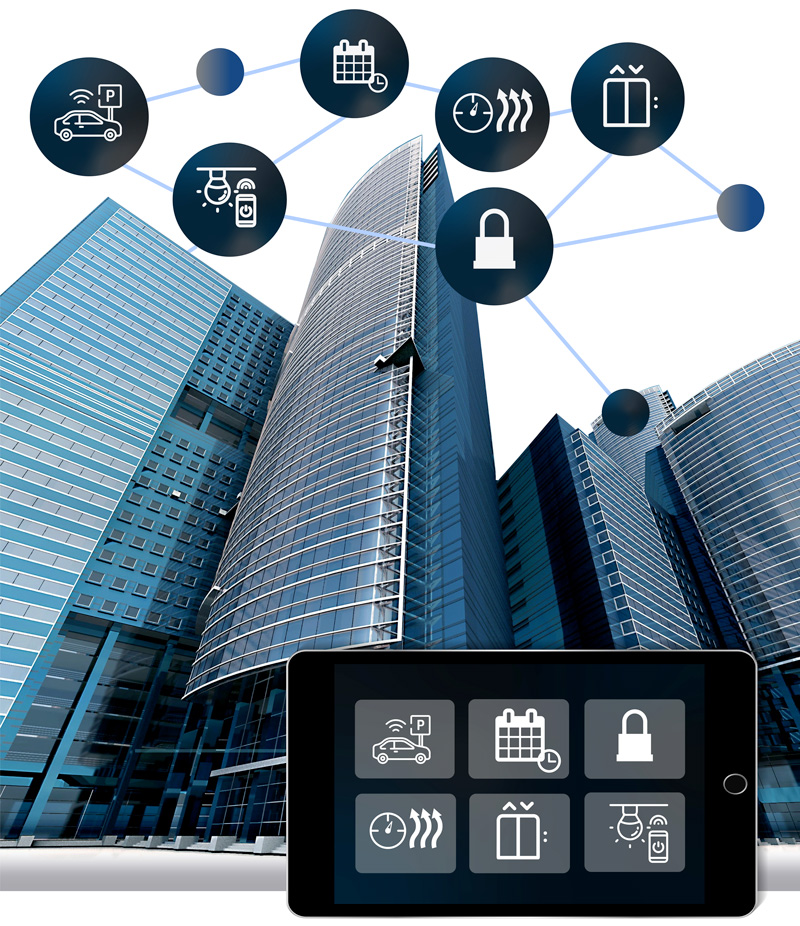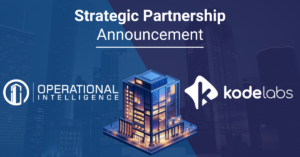Traditionally connected building systems, like HVAC, lighting, and security, are now expanding to integrate other functionalities at an unprecedented rate, in response to the swift advancement of intelligent automation technology. Such technology promises to enhance occupant wellbeing and augment building sustainability.
Increasingly, building owners seek to harvest more data to craft a comfortable and engaging experience for tenants and staff. The surge in data-driven approaches is a testament to technology’s role in unlocking a myriad of possibilities for heightened convenience and comfort.
With smart technology, owners can now engage with virtually every facet of their facilities beyond the standard functions connected via a conventional Building Management System (BMS). From workflows, energy management systems, room booking, smart parking to coffee ordering, the user experience within buildings is becoming more seamless and efficient.
At the core of this transformative user experience is the intelligent integration platform. But what exactly is it?
An integration platform is a centralised building systems interface accessible through phones, tablets, or laptops, presenting various building operations at your fingertips. While offering data that empowers operators to enhance efficiency, sustainability, and reduce energy costs, it also significantly improves usability for occupants.
By employing advanced logic, intelligent integration platforms elevate the end-user experience, making it more comfortable, interactive, and personalised. For instance, while a traditional BMS allows basic control over lighting and HVAC, an intelligent BMS, coupled with an integration platform, can auto-adjust these elements to suit your personal preferences.
Below, we have outlined five key benefits of adopting an advanced integration platform integrated with an intelligent BMS:
Benefit 1: Unified Data for More Effective Results
Buildings often house multiple data silos, which hinder communication and underutilise valuable data. Integration systems dissolve these silos, promoting clearer communication and more effective data use, leading to quicker, more efficient problem-solving and optimised building management. Driving up good decisions through better data driven insights promotes driving down operational and utility costs.
Benefit 2: Increased Operational Savings
An advanced integration platform provides detailed visibility of every connected system within the building. With unified data reports and visualisations, building owners can create more informed, data-driven insights, drastically lowering operational costs. One of the costs is energy usage, which can be better monitored and managed with dashboards that track energy usage and identify where waste can be reduced.
Also, with a detailed digital map of the building, identifying mechanical issues becomes quick and easy as managers can detect, isolate and resolve the issue before it becomes too costly. An integration platform means maintenance expenses are kept to a minimum.
Benefit 3: Improved Satisfaction of Occupants
Advanced integration platforms create a connected and convenient environment, increasing occupant contentment and control over their spaces. This leads to higher retention rates and enhances the long-term value of the building.
Benefit 4: Open System
Sophisticated platforms operate on open systems, allowing integration of top technologies from various vendors without the need for complete overhauls, ensuring cost-effectiveness and flexibility.
Benefit 5: Reduced Labour Costs
An integration platform provides greater flexibility and capability with advanced automation tasks like workflows, graphics, and unified data, instead of relying on individual silos that don’t always add up. Integrating and automating the various systems of a building will eliminate human error in interpreting data. It will also reduce the labour cost of obtaining data without knowledge of how to apply it.
The integration platform can provide standard dashboards and tenant portals across all building systems. They are easy to use and informative, eliminating the need for understanding multiple eclectic platforms. This means managers are spending less on training staff to understand and interpret the building’s data.
Contact us to transform your building into a smart building
Operational Intelligence is a global leader in technology strategy and innovative design with over three decades of trusted experience. Having enabled over 3,700 smart solutions worldwide, we are the go-to experts for taking your building into the future with the most advanced smart building technology and solutions.
Contact our team for more information on how you can optimise your building utilising the most advanced smart building technology and solutions.

Disclaimer: The content within is the opinion of the author and engineering team of Operational Intelligence.





